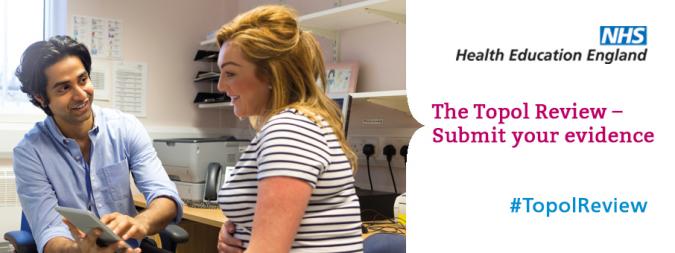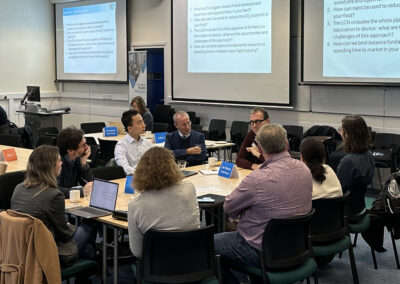As the NHS celebrates its 70th anniversary, LCN academic and i-sense EPSRC IRC Director, Professor Rachel McKendry, is helping to assess how new technologies including genomics, artificial intelligence and bionanotechnology, will shape the future of healthcare in the UK for decades to come.
An independent review – the Topol Technology Review – has been commissioned to assess the impact of new technologies on the training of staff in the NHS, and an open call for evidence was released by Health Education England today.
It will look at appropriate training needs for exisiting and future NHS staff to use digital technologies for better delivery of treatment and care to patients, as well as increase efficiencies in the healthcare system, freeing up some time for healthcare professionals.
“With over 1.2 million staff in England, the NHS is one of the five largest employers in the world. It is vital that we train current and future NHS staff to use new technologies, including genomics and point of care tests, to diagnose disease much earlier than ever before, and to improve patient care” said Professor Rachel McKendry, who is playing a key role in the Review.
The Topol Review
Led by cardiologist, geneticist, and digital medicine researcher Dr Eric Topol and facilitated by Health Eduction England, this major independent review brings together a Board of leading experts in genomics, digital medicine, artifical intelligence (AI), and robotics.
“We desperately need innovation in healthcare. AI is already in every aspect of our lives – from navigation to voice recognition – and will now be applied to healthcare, the next frontier,” said Dr Topol.
Professor Rachel McKendry is Co-Chair for the Digital Medicine panel looking at a range of technologies including telemedicine, apps, wearables, virtual reality, bionanotechnology and point of care tests for disease diagnosis.
“Today we are launching our interim report, and we welcome input from any individual or organisation with an interest in NHS training and education to contribute their views and experience using digital technologies for health. We are also holding a series of workshops with key stakeholders, including representatives from patient groups and the public,” Professor McKendry said.
The interim report estimates that 89% of UK adults have used the internet in the last three months, and in May 2018, 24% of patients in England (13.9 million people) were registered for online services with their family doctor to book appointments, order repeat prescriptions and view their records according to NHS England, saving time for themselves and busy GPs.
Professor Dame Anne Johnson (UCL Infection & Immunity and UCL Institute for Global Health) who is also playing a key role in the review, said: “Digital technologies have the potential to radically change how and where we best diagnose, treat and prevent illness. We need to develop these exciting new ways of providing health services alongside the public and professionals who will use them to improve care and health for everyone.”
Key principles of the report
Today’s report proposes three key principles, which should govern the NHS’s future workforce strategy [Facing the Facts, Shaping the Future, A health and care workforce strategy for England to 2027]:
Patients: If willing and able to do so, will be empowered by new tools to become more actively involved and engaged in their care.
Evidence: The introduction of any technology must be grounded in robust research evidence with a fit for purpose and ethical governance framework that patients, public and staff can all trust
Gift of time: Whenever possible, the adoption of technology should be used to give more time for care, creating an environment in which the patient-clinician relationship is enhanced.
Submitting evidence
Evidence and comments are welcomed from experts in the healthcare and technology sectors, with a view to informing the Final Report, towards the end of 2018.
To contribute to the call for evidence, please visit https://www.hee.nhs.uk/our-work/topol-review before 12.00 on 29 August.
Links:
i-sense
UCL Mathematical & Physical Sciences
UCL Population Health Sciences
UCL Institute for Global Health
This article was originally prepared by Erin Manning for the i-sense website.



